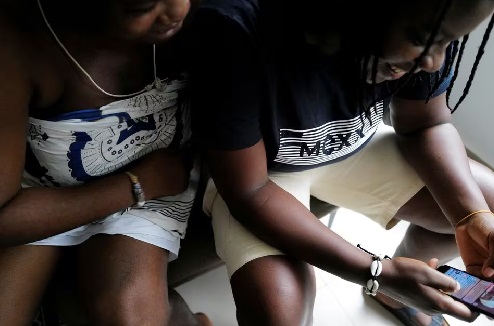
Ghana LGBTQ+ activists see church blessings as distant luxury
In a country where religious leaders openly condemn homosexuality and gay sex is punishable with jail time, Ghanaian couple Kay and Naa Shika fear more for their lives and safety than whether a church will bless their same-sex union.
They have lived together for eight months, hiding their relationship by pretending to be sisters, even as they face gossip that risks spilling into hostility due to suspicions about their sexual orientation.
"We are not safe," said 27-year-old Kay, a lesbian woman who spoke to Reuters in the capital Accra on condition that her and her partner's real names were not used.
Their precarious situation has not been helped by a landmark ruling in December, approved by Pope Francis, to allow Roman Catholic priests to administer blessings to same-sex couples.
The move, which has met particularly strong resistance and in some cases rejection from African bishops, has fuelled resentment rather than acceptance of the gay community among Catholics in Ghana, Kay said.
The Ghana Catholic Bishops' Conference has said that it cannot comply. Father Dominic Maximilian Ofori told Reuters he feared the Pope’s stance had annoyed many Ghanaian Catholics.
In January, Pope Francis said Africans were "a special case" in apparent acknowledgement of the pushback his decision unleashed.
MOB JUSTICE
Kay, a former Methodist, and an LGBTQ+ advocate, is not surprised by the backlash and sees church blessings as a luxury for the future since Ghanaian gay people still struggle to live and identify as themselves openly.
"What is the use (of a blessing) if my partner and I can’t hold hands and walk down the street," she said. "Even when we don’t identify openly, some people, based on rumours, can harm us mentally or even physically."
There is no comprehensive data on the abuse LGBTQ+ people face in Ghana, but local news is filled with reports of suspected gay and transgender people suffering mob justice countrywide. Few such incidents make it to the courts.
Kay said opposition to the Pope's move had increased calls for the quick passage of a bill that would further criminalise same-sex relations and being transgender, as well as any advocacy for LGBTQ+ rights.
Gay sex is already punishable by up to three years in prison. A coalition of Christian, Muslim, and traditional leaders has sponsored the new legislation, which is favoured by most lawmakers, that would punish the promotion of LGBTQ+ rights with up to 10 years in prison.
It also encourages those accused of homosexuality to submit to conversion therapy, which claims to change sexual orientation, in exchange for reduced sentences.
Emmanuel K. G. Hailord, a student and LGBTQ+ activist, agreed with Kay that it would take a long time for socially conservative Ghana to change. He wants LGBTQ+ members in Ghana and elsewhere to start their own, more accepting branches of the Catholic Church and other religions.
"It’s better than cramping ourselves in a room and dying inside," he said. "You have to be yourself instead of being in a closet, although it is scary."
Kay and her 30-year-old partner, a traditional priestess, look forward to a future where they can formalise their marriage in an LGBTQ+-friendly church, but in the meantime they also wish for more acceptance.
"As a couple, all we demand of people is love your neighbour. The typical Ghanaian family values preach love for one another. Gay people belong to families and if you love us, you should respect and protect us, not harm us," Kay said.
